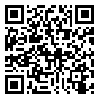BibTeX | RIS | EndNote | Medlars | ProCite | Reference Manager | RefWorks
Send citation to:
URL: http://jhosp.tums.ac.ir/article-1-25-en.html
2- دانشکده بهداشت و تغذیه دانشگاه علوم پزشکی تبریز ,
Background: Accreditation is one of the evaluation systems which have numerous effects on the key indicators in health care system. To develop a suitable accreditation model, a best way could be the benchmark of the powerful and successful accreditation models in all over the world. By considering likely differences in the various countries health systems, this study aims to survey the compatibility of the best accreditation models and standards in Islamic Republic of Iran's health care system.
Materials & Methods: In this study, the expert's perspectives have been ascertained about standards of selected references accreditation models based on standards "importance" and "feasibility" using two rounds Delphi Technique. The experts selected among scientific and academic experts in the areas of accreditation and health services management. They were asked to fill up the Delphi questionnaire and send back it to the researchers in the designated time. Each standard scored in Likert scale from 1 to 9. Standards with mean score of ≤ 3 were rejected, standards with mean score between 4 and 6 send to the second round and standards with mean score ≥ 7 included in the national model.
Results: In the first round, 20 out of 27 questionnaires have been obtained from experts. After data analyses all the standards have been accepted except 31 with mean score between 4 and 6. Remained 31 standards with achieved mean scores in first round, send back to the study experts through the second round. In the second round, 17 out of 20 questionnaires collected and finally 18 standards were rejected.
Conclusion: According to the variety of standards, comprehensive categories and richness of necessary details of standards, the resulted model in this study could be a rich and suitable model for Islamic Republic of Iran. Therefore, using this model could empower evaluation system and improve the quality of health care system.
Received: 2011/09/17 | Accepted: 2011/12/10 | Published: 2013/10/7
| Rights and permissions | |
 |
This work is licensed under a Creative Commons Attribution-NonCommercial 4.0 International License. |





